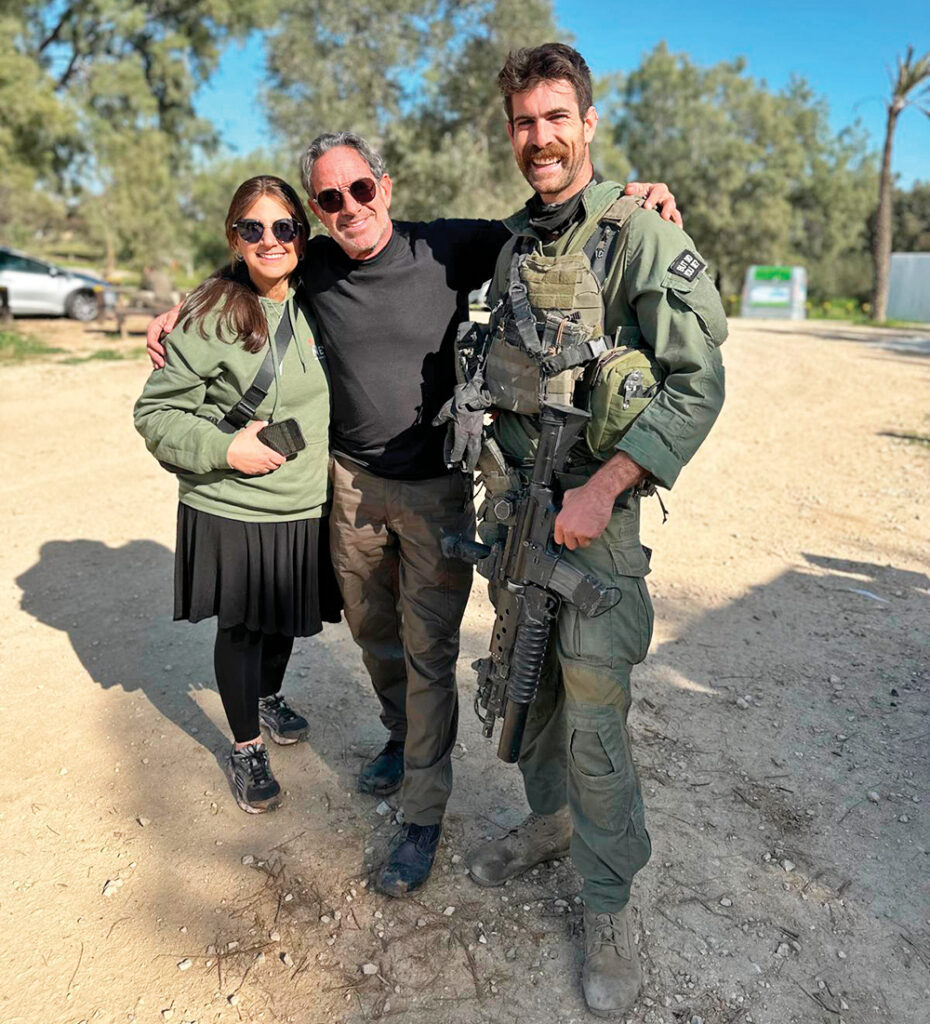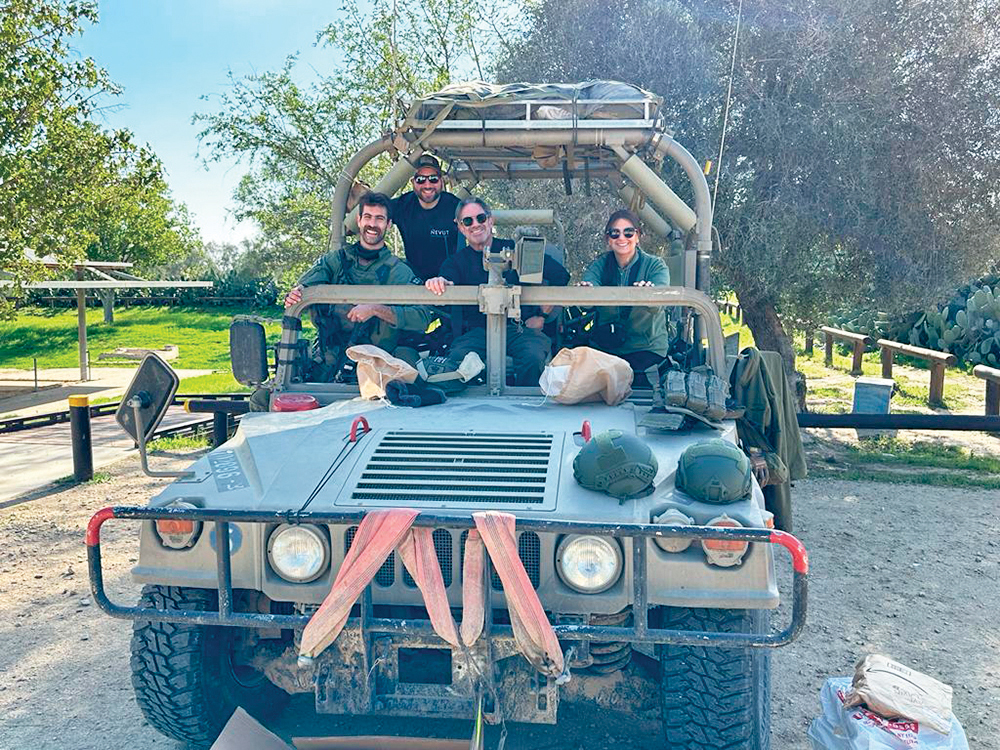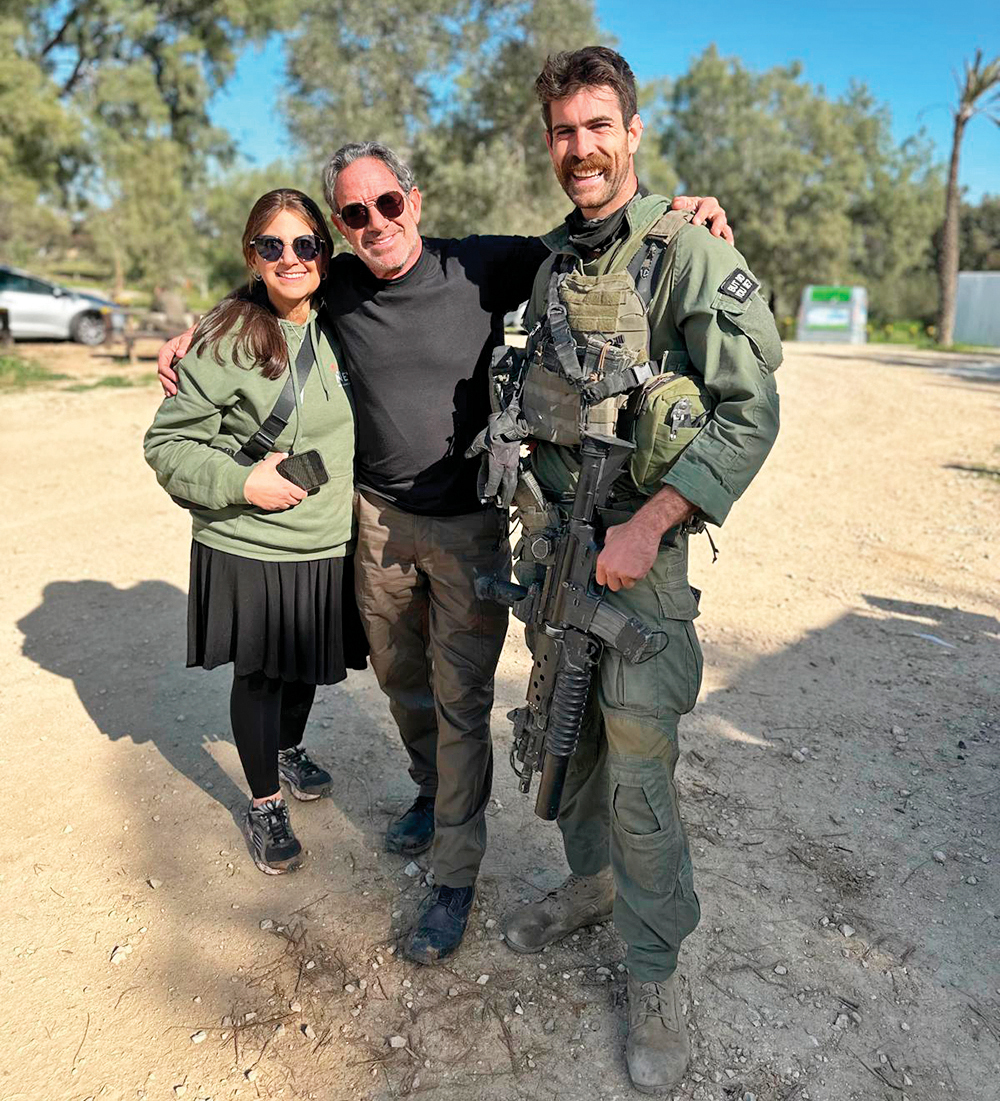
In this week’s Parsha, Emor (22:32) the pasuk says; You shall not desecrate My Holy Name. I shall be sanctified amidst the children of Israel. I am the Lord Who sanctifies you.
The Rambam writes in Sefer Shoftim: מלכים ומלחמות – פרק ז:טו
… “Once a soldier enters the throes of battle, he should rely on the Hope of Israel and their Savior in times of need. He should realize that he is fighting for the sake of the oneness of God’s Name. Therefore, he should place his soul in his hand and not show fright or fear. He should not worry about his wife or children. On the contrary, he should wipe their memory from his heart, removing all thoughts from his mind except the war…
…Furthermore, he is responsible for the blood of the entire Jewish nation. If he is not valiant, if he does not wage war with all his heart and soul, it is considered as if he shed the blood of the entire people…
The concept of unifying the nation’s heart as one, especially during times of conflict or war, is crucial. It aligns with the idea that when Israel goes to war, it shouldn’t merely be a collection of individuals fighting independently, but a united front, where each soldier’s courage and moral integrity reflects the collective values and faith of the entire nation. This unity is essential not only for military success but for spiritual elevation. The first example of the spiritual unity via the physical, was when Bnei Yisrael encamped at Har Sinai to receive the Torah. Rashi says there “like one man with one heart (Shemos 19:2).”
The heart is the center for emotions. It is emotions, not logic, that are the initializers of any physical interaction. For example, if someone jumps and scares me, I will instantly react as my body pumps cortisol and adrenaline through me, which in turn will elevate my heart rate and pump blood to my muscles, preparing for a confrontation. After this physiological change, my rational brain must come up with an explanation as to why I reacted the way I did. The Torah commands us to lead with our hearts, as we say in the beginning of Shema, “and you should love Hashem your God, with all of your heart…”.

When one goes into battle, he must strip away everything except for the feeling of sanctifying the Oneness of God’s name. This includes removing thoughts of his wife and children from his mind. Who then will hold that space for him? His family and, by extension, the rest of the nation. While we, as soldiers, are solely dedicated to defending the nation, the rest of the population’s obligation is to hold that space for us. As the Rambam says, it’s the soldiers’ job to be “…responsible for the blood of the nation.” Yet it is the nation’s job to hold his heart. We cannot go into battle without knowing that there will be someone, behind our lines, that can hold the space for us; that can ensure that no matter what happens, my “blood” will be able to pump “throughout the body.” As a soldier, it is my job to be the life force, the blood; my immediate family becomes my heart, and my community and nation become the arteries, veins and capillaries. Together, and only together, can we draw in breath, oxygenate and perfuse this life-force to the body of Klal Yisrael.
We can take this metaphor even deeper, as when the world is viewed through an individualistic lens: the blood is me, my will and my actions. Yet blood is only effective if it can be properly transported throughout the body. Serving as the center for my feelings and energies is my family. When properly channeled, my family becomes the force that pushes me forward, giving me the energy to propel onward.
However, this is not enough, for this wave of potential must be pushed in a specific direction for a specific purpose. This is where my community and nation come into play. People, and by extension groupings of people, are made up of different materials. Some are highly pressured, others chilled and slower to react and yet others are amazing communicators with abilities to seamlessly connect with anyone and exchange anything, regardless of their size or importance. Thus, metaphorically, a nation and its people are most apropos to the circulatory system, each with its own unique yet equally important job, ensuring that no limb is forgotten.
But the Torah warns, “And the officers shall continue to speak to the people and say, “What man is there who is fearful and fainthearted? Let him go and return to his house, that he should not cause the heart of his brothers to melt, as his heart.” (Devarim 20:8).
We see from here that regardless of the reason, an individual’s failure to unite is contagious and therefore he must be isolated. Yet, where is this person supposed to retreat to? To his house. The Torah does not permanently revoke his warrior status, it simply is commanding him to go back to his roots, his source of strength. Once he fixes and is reunited with his “why,” he can now overcome any “how.” In this state, he would be allowed to rejoin his comrade-in-arms, and by extension, his people.
Politics aside, leading up to October 7, Jews experienced a year of discord, strife and baseless hatred. God chose to give us a painful reminder by plucking individuals, bruising families and scarring a nation. Yet the body is resilient. The power of the mind supersedes everything else. However, a person can only harvest, channel and utilize his/her own individual mind power. Thus, when a person makes that decision, he will inevitably draw from the larger power source of his family and, by extension, the nation.
Controversial as this may sound, in my eyes, this war is a gift. It is giving us the opportunity to reunite with one another, in ways we never expected. Be it as simple as donating equipment, money or even being present to just lend an ear or give a hug, we all have a way of helping. For the soldiers’ problem is our problem.
Nevut, has been on a mission to do just this, offering a place for soldiers to call home. Founder Rabbi Ari Abramowitz, a veteran of the Netzach Yehuda Battalion, recognized the void in support systems for IDF Lone Soldiers and was inspired to provide a continuum of care that extends beyond the battlefield. Nevut’s expanded mission offers a suite of services, preparing these heroes for the eventual return and reintegration into civilian life in a stable and controllable manner.
Nevut’s comprehensive approach offers psychological support, career counseling and community integration. The organization emphasizes the importance of mental health, with a focus on trauma, PTSD and resilience. Career advancement programs, among many others, ease veteran integration with society.
Looking forward, Nevut is dedicated to expanding its reach and depth of services. Nevut is excited to announce a new partnership with Heroic Hearts Project, launching a groundbreaking program specifically tailored for IDF lone soldiers grappling with PTSD, depression and other post-war challenges. This collaboration introduces a nine-week program culminating in a five-day group retreat designed to provide safe, supervised access to therapies known for their potential to significantly alleviate psychological distress.
The ongoing support of donors and volunteers is vital for Nevut’s mission. Engaging the community through events and initiatives remains a priority to ensure that every returning soldier receives the support they (and we all) deserve.
Nevut embodies the spirit of mutual responsibility—a fundamental tenet of Jewish ethos. By supporting our soldiers, we honor their sacrifices made for us and ensure that their return home is safe, supportive and successful. As a nation, we have already paid too steep a price for what we lost—our unity. Let us all, individually, find a way to support our soldiers.
It’s painless to succumb to the chaos of war, yet strenuous to embrace the silence of home. With your help and Nevut’s guidance, many more soldiers will navigate this transition successfully, finding peace within themselves. It is easy to die for something; it is much harder to live for it. May our individual acts of servitude bind us into a collective of strength, and may this unity bring a holistic sanctification of Hashem, meriting us to see Mashiach today!
To support Nevut’s mission, please donate at nevut.org/donate.
Avi David is an active-duty reservist in the 55th brigade.










